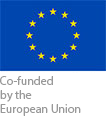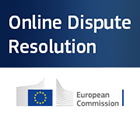Online reviews: can they be trusted?
Last updated on 28/09/2022.
A charming boutique hotel in Southern Italy via a well-known platform? A good deal for an electric bike on an unknown Spanish website? DIY materials via an advert on social media? The internet is the ultimate site for interesting deals! Unfortunately also for fraudsters. How can you determine whether a web shop can be trusted? Checking online reviews is an excellent start, providing you adopt a critical approach. Because unfortunately reviews can also sometimes be manipulated, i.e. machine generated fake reviews, negative comments removed, etc. The European legislator has introduced certain rules to make online reviews more reliable, as explained below.
What do European rules stipulate?
First and foremost an online seller has a notification duty. They must:
- indicate whether they use specific processes to guarantee the authenticity of reviews (e.g. check whether the review definitely originates from a consumer who actually bought the product).
- specify how the reviews are checked if they use verification processes.
- provide unequivocal information regarding how the reviews are processed (e.g. ‘all reviews, positive or negative, are published’, ‘sponsored reviews’, ‘review published by an influencer subject to reward').
Moreover, an online seller must not:
- publish fake reviews themselves.
- ask an individual or company to post fake reviews or recommendations (e.g. ‘like it’, ‘I like’) to promote their products or services.
- manipulate reviews or recommendations by consumers e.g. by only posting positive reviews and removing negative reviews.
- omit to check whether the consumer who posted the review has actually used the product.
Good to know: such practices are considered unfair trading practices. Did you make a purchase on the basis of manipulated reviews? If so, you can invoke unfair trading practices to cancel your contract. In practice, however, this will probably necessitate an intervention by the court.
The right approach in order to expose fake reviews
A few tips to distinguish between real and fake reviews:
1. Vary your sources
- Don’t just rely on the reviews on the seller’s website. Also check reviews on review platforms that can tell you more about a web shop’s trustworthiness. A few examples: Google reviews, Tripadvisor, Facebook, Trustpilot.
- Enter the name of the website in search engines (e.g. Google Chrome, Bing and Yahoo) and add terms such as ‘complaints’, ‘reviews’ or ‘fraud’ to your search criteria. You will find out whether an online seller is genuine or fraudulent in no time at all.
2. View other people’s reviews with a critical eye
- Very brief reviews, with no further details regarding the experience. If you are not happy with a web shop, do you merely write “bad service” or “poor seller”?
- Reviews without a personal message concerning the quality of products or services.
- Similar reviews, using similar vocabulary or sentence constructions. They are probably written by the same person, the company itself or a competitor.
- Badly written reviews, in poor English. They may originate from companies that are paid to post huge numbers of reviews.
- Reviews posted in quick succession, whereas earlier reviews were published over a longer period of time. This looks suspiciously like a short series of fake reviews to boost the online seller’s reputation.
- Only recent reviews. Is the oldest review no more than two weeks old? Exclusively recent reviews don’t tell you anything about the seller’s integrity in the long term. If you don’t find any further reliable information about the web shop, it could well be a fraudulent website that will disappear as quickly as it appeared.
- Contemptuous reviews could well have been written by competitors who are referring you to another website.
- So-called ‘certified’ reviews. The use of this term by some sites could be misleading. Although technically it is possible to certify that a review originates from a customer who bought the product, the consumer’s actual experience cannot be certified.
- Reviews posted by employees. Check in a search engine whether you can find a link between the writer of a review and the trader they are recommending.
- Anonymous reviews. Particularly if all five star reviews were posted by anonymous writers or under a pseudonym.
Good to know: reading customer reviews is only one tip to verify the reliability of a web shop. Definitely check all the other tips as well via Webshop Check!
ECC Belgium at your service
Are you unsure about the reliability of a web shop or about a review? Contact our legal team for free legal advice.
Do you suspect that the reviews on a web shop or review platform have been manipulated? If so, please do not hesitate to report these practices to the Economic Inspection.


